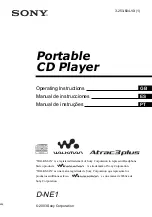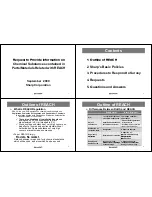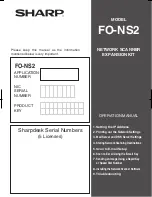
Virtual Router Redundancy Protocol
ExtremeWare XOS 11.3 Concepts Guide
488
Electing the Master Router
VRRP uses an election algorithm to dynamically assign responsibility for the master router to one of the
VRRP routers on the network. A VRRP router is elected master if the router has the highest priority (the
range is 1 to 254; 255 is a reserved number).
If the master router becomes unavailable, the election process provides dynamic failover and the backup
router that has the highest priority assumes the role of master.
A new master is elected when one of the following things happen:
●
VRRP is disabled on the master router.
●
Loss of communication occurs between master and backup router(s).
●
Another VRRP router is attached to the VLAN, and the new router has the same priority as the
current master.
When VRRP is disabled on the master interface, the master router sends an advertisement with the
priority set to 0 to all backup routers. This signals the backup routers that they do not need to wait for
the master down interval to expire, and the master election process for a new master can begin
immediately.
The master down interval is set as follows:
3 * advertisement in skew time
Where:
●
The advertisement interval is a user-configurable option.
●
The skew time is (256-priority/256).
NOTE
An extremely busy CPU can create a short dual master situation. To avoid this, increase the advertisement interval.
Additional VRRP Highlights
The following additional points pertain to VRRP:
●
VRRP packets are encapsulated IP packets.
●
The VRRP multicast address is 224.0.0.18.
●
The virtual router MAC address is
00 00 5E 00 01 <vrid>
●
Duplicate VRIDs are allowed on the router but not on the same interface.
●
The maximum number of supported VRIDs per interface is seven.
●
An interconnect link between VRRP routers should not be used, except when VRRP routers have
hosts directly attached.
●
A maximum of 64 VRID instances are supported on the router.
●
Up to seven unique VRIDs can be configured on the router. VRIDs can be re-used, but not on the
same interface.
Summary of Contents for ExtremeWare XOS 11.3
Page 20: ...Contents ExtremeWare XOS 11 3 Concepts Guide 20...
Page 25: ...1 Using ExtremeWare XOS...
Page 26: ......
Page 38: ...ExtremeWare XOS Overview ExtremeWare XOS 11 3 Concepts Guide 38...
Page 58: ...Accessing the Switch ExtremeWare XOS 11 3 Concepts Guide 58...
Page 146: ...Configuring Slots and Ports on a Switch ExtremeWare XOS 11 3 Concepts Guide 146...
Page 218: ...Status Monitoring and Statistics ExtremeWare XOS 11 3 Concepts Guide 218...
Page 240: ...Virtual LANs ExtremeWare XOS 11 3 Concepts Guide 240...
Page 248: ...Virtual Routers ExtremeWare XOS 11 3 Concepts Guide 248...
Page 278: ...Access Lists ACLs ExtremeWare XOS 11 3 Concepts Guide 278...
Page 288: ...Routing Policies ExtremeWare XOS 11 3 Concepts Guide 288 entry deny_rest if then deny...
Page 344: ...Security ExtremeWare XOS 11 3 Concepts Guide 344...
Page 393: ...2 Using Switching and Routing Protocols...
Page 394: ......
Page 454: ...Spanning Tree Protocol ExtremeWare XOS 11 3 Concepts Guide 454...
Page 484: ...Extreme Standby Router Protocol ExtremeWare XOS 11 3 Concepts Guide 484...
Page 514: ...IPv4 Unicast Routing ExtremeWare XOS 11 3 Concepts Guide 514...
Page 530: ...IPv6 Unicast Routing ExtremeWare XOS 11 3 Concepts Guide 530...
Page 538: ...RIP ExtremeWare XOS 11 3 Concepts Guide 538...
Page 556: ...OSPF ExtremeWare XOS 11 3 Concepts Guide 556...
Page 566: ...OSPFv3 ExtremeWare XOS 11 3 Concepts Guide 566...
Page 589: ...3 Appendixes...
Page 590: ......
Page 640: ...CNA Agent ExtremeWare XOS 11 3 Concepts Guide 640...
Page 670: ...Glossary ExtremeWare XOS 11 3 Concepts Guide 670...
Page 698: ...Index ExtremeWare XOS 11 3 Concepts Guide 698...
















































